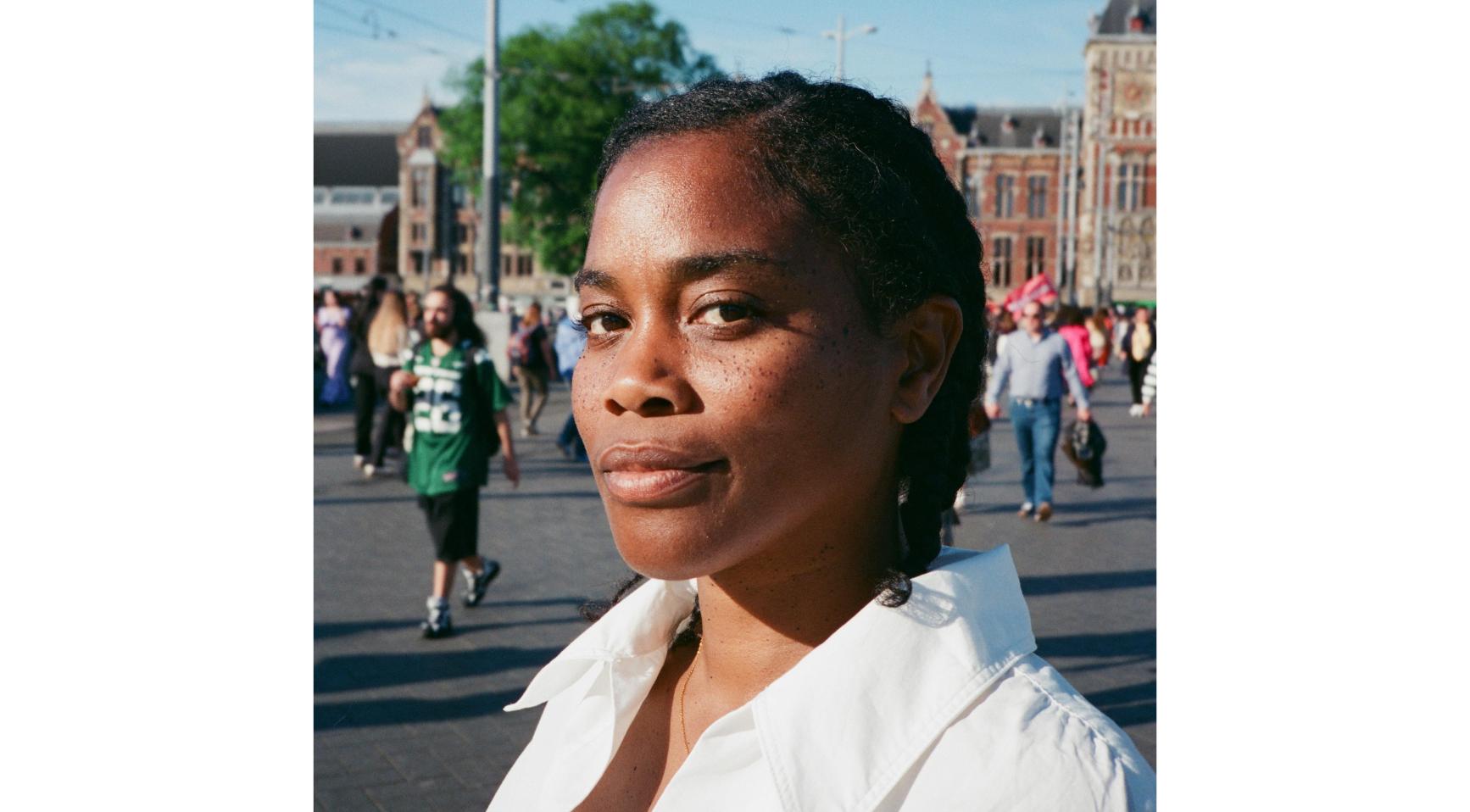By 83232,Nl Times
Copyright nltimes

Julia-Beth Harris doesn’t just write poetry; she invites her audience to experience her truth and her explorations, whether it be family, diasporic identity, religion, or urban tension, often inspired by her experience as an immigrant in the Netherlands. She revealed that the tension of searching for belonging is a constant engine for her work, allowing her to bridge ancestral knowledge with the contemporary political landscape.
She joined the Dam Yankee podcast, a partnership with NL Times, to discuss her unique approach to art, one that refuses to separate the poetic from the political. The South African-born artist, who also explores the complicated colonial relationship between the Netherlands and South Africa, shares how the deep emotional current of homesickness and belonging pushes her to use her words to “ignite movements and inspire transformation.”
And while the author and performer may have left her hometown of Cape Town 14 years ago to be an au pair at the age of 24, the emotional landscape of South Africa continues to inform her art in Amsterdam. It is an unusual relationship, since she says her new city chose her, not the other way around, and she deeply enjoys her life in the Dutch capital.
Still, there is a complex duality to building a home in a foreign place while maintaining ties to the one left behind. She spoke about this duality with Dam Yankee host Zack Newmark, explaining that by using her voice to articulate the painful truths of longing, her poetry invites others into a space of collective liberation and solidarity. During the episode, she also recites her poem, “Forward,” which will be part of her upcoming show, Where the Clouds Gather, on November 29 at the Keizersgrachtkerk during The Spirit of Amsterdam Festival.
Dam Yankee: How is it you wound up in the Netherlands?
Julia-Beth Harris: It’s funny. When I applied to be an au pair, the agency where I applied had three options, and it seemed so random that these would be the options. You could either go to Israel to work in a kibbutz and offer six month relief work, or you could be an au pair in either the U.S. or the Netherlands. And to me at the time, the Netherlands, despite what I now know about our shared history, felt the most foreign, because it just felt like I didn’t know much about it. The history wasn’t really top of mind for me. I had a very superficial understanding of what Amsterdam would be. I thought, ‘Cheese and clogs! Let’s go!’ Not knowing that I probably have ancestors from here, you know, in the context of the history.
So when I ended up here, it was very much out of adventure. And I didn’t land in Amsterdam immediately. I landed in Geldermalsen in the Dutch countryside, right in the middle of the country. And being a city girl from Cape Town, it was quite a culture shock.
DY: Did you know that that’s where you were going to land?
JBH: I knew that that was where I was going to, but I didn’t realize just how different the Dutch countryside was from everything that I knew as a city person. I mean, it was flat green plains, mist, and cows, and silence. I think that was the most jarring for me, for somebody from the city, was the silence. I wasn’t prepared for that.
DY: Did you ever get used to the silence in the Dutch countryside when you first arrived?
JBH: Well, actually, just in this now that you’re asking, the silence became one of the tools that enabled me to be a poet. I didn’t realize that that silence was polishing me actually into being able to listen to the deeper voices, which is where poetry comes from, at least for me.
DY: Something that you write about quite a bit also is your connection to the water, as well. Do you still feel that connection also at the North Sea?
JBH: Absolutely. I mean, the ocean is the ocean. When I arrive at the at the sea, and especially if the waves are dramatic. Cape Town is along the area where the Atlantic coast runs along and that’s a cold ocean. So even when all the pictures on the tourist brochures of Cape Town looks very sunny and everyone’s in bikinis and it’s just hot, hot, hot. One dip of your toe in the water will show you that it’s actually quite freezing. So that’s what I’m used to. I’m used to that when you go to the ocean and you put your feet in it, it grabs you by the ankles and it makes a statement. It’s like, ‘Boom, you’re mine!’
That’s how I feel when I go home and I step foot back on Camps Bay Beach or whatever it is. So the ocean is really something that speaks also with its temperature. Similarly, when I went to the North Sea and the ocean is also something that you’re not negotiating or interacting with only from a place of comfort and pleasure, it’s also quite cold and dramatic and rough.
So I get that same feeling of being appealed to, being spoken to, being engaged with and compelled to do something and feel something and share that. So yes, there’s definitely a connection when I see the seas here. It makes me feel at home.
DY: Is there something else that triggers that feeling of homesickness for you?
JBH: Yeah, food. Snacks. And the absence of a proper curry in the way that I understand it from home. I mean, that definitely triggers a sense of longing. It’s just like everything that you’ve known from before.
Julia-Beth Harris announces her upcoming performances on Instagram and her website, and The Spirit of Amsterdam Festival Pass is already on sale for 175 euros. The full episode of Dam Yankee is available on all podcast platforms, and can also be seen on YouTube.



